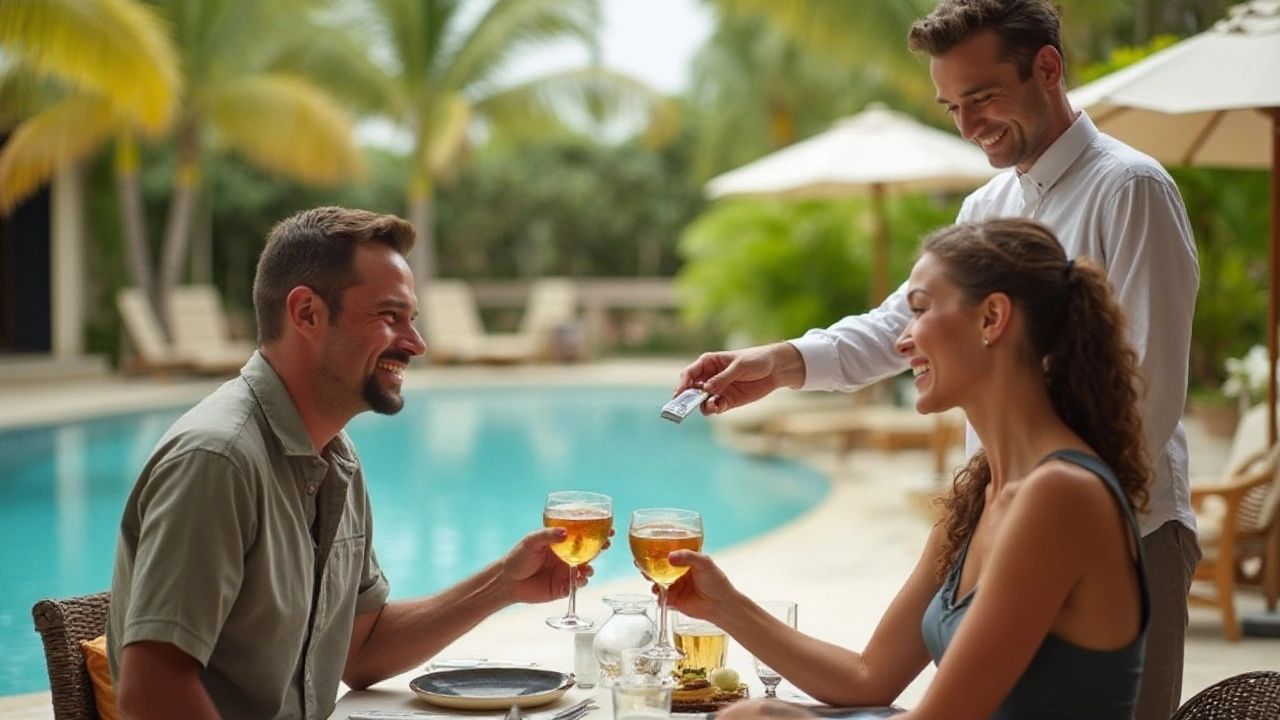When vacationing at all-inclusive resorts, guests often wonder if tipping is necessary despite the 'all-inclusive' label. This article dives into the intricacies of tipping in such settings, discovering practices and norms across different destinations. It provides insight into why tipping is valued, even if it's not obligatory, as well as highlighting the benefits of showing appreciation for great service. Readers will find helpful tips on how much to tip and whom, ensuring a harmonious stay.
Etiquette Essentials for Your Next Stay
Going on a break should be about relaxation, not awkward moments. Whether you’re booking a cosy cottage, a boutique hotel, or an all‑inclusive resort, a few simple habits make the experience better for everyone.
Know the Basics Before You Book
First thing – read the property’s rules. Most self‑catering cottages list child‑age policies, quiet hours, and whether you can bring pets. If the guide says no loud music after 10 pm, stick to it. The same goes for hotels: check if they charge extra for extra beds or if they have a dress code for the spa. Knowing the details avoids surprise fees and keeps your stay hassle‑free.
When you book directly with an owner, you often get more flexibility, but you also need to be clear about expectations. Let the owner know how many guests are coming, what time you’ll arrive, and whether you’ll need extra linens. A quick email back and forth saves confusion later.
Mind Your Space and the Neighbours
In a cottage, you share walls and sometimes a garden with neighbours. Keep noise down, especially early morning and late evening. If you’re using a grill or fire pit, clean up the area and dispose of ash safely. In a hotel, respect shared spaces – leave the pool deck tidy, and don’t hog the lounge chairs. Small actions like wiping down a table after use show common courtesy.
When you’re at an all‑inclusive resort, the temptation to overindulge is real, but remember the staff are working long hours. Tip generously if you can, and be polite when asking for extra drinks or food. If a restaurant offers a “no‑extra‑charge” item, don’t assume it’s unlimited – ask first.
Dining Do’s and Don’ts
Hotel breakfasts often have a buffet line. Wait your turn, use a plate, and avoid piling too much food onto it. If you’re unsure whether a dish is included in an all‑inclusive package, ask the server. For self‑catering stays, clean up after cooking. Wash your dishes, take out the rubbish, and leave the kitchen as you found it – future guests will thank you.
When you dine in a spa or health club, follow the dress code. Sportswear is fine in the gym, but a swimsuit is usually required for the pool. If the spa supplies robes, use them responsibly and return them in good condition.
Communication Is Key
If something goes wrong – a broken appliance, a missing towel, or a noisy neighbour – report it calmly to the host or front desk. Most places will fix the issue quickly if they know about it. Don’t let frustration build up; a polite request goes farther than an angry complaint.
When leaving a review, be honest but fair. Mention what you liked and where there’s room for improvement. Constructive feedback helps the property improve and guides fellow travellers.
Following these etiquette basics won’t just make your trip smoother; it also shows respect for the people who work hard to keep the place welcoming. So pack your bags, keep these tips in mind, and enjoy a stress‑free holiday.
